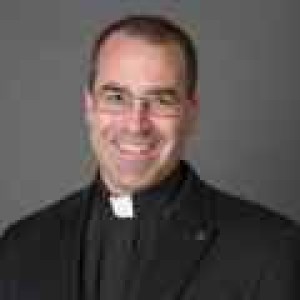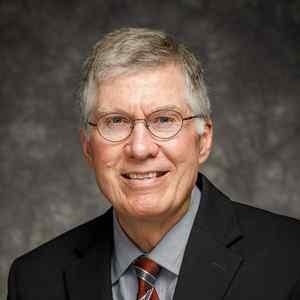Episodes

Monday Feb 25, 2019
Monday Feb 25, 2019
0:00 - Science is materialist by method, but scientists need not and should not be materialist by philosophy
2:00 - The world must be real and intelligible for science to make sense
3:00 - And faith provides a philosophical basis that allows this to happen
3:30 - Students' testimony on faith and science
4:30 - Removing the faith/science obstacle is only one step on the road toward faith
5:00 - God vs. Godzilla
6:00 - The true God and His use of secondary causes
11:00 - Creation as carmen Dei (song of God; Bonaventure)
12:00 - vs. strepitus naturae
15:00 - Thought and spirit vs. matter
[This harks back to, e.g., the Ed Feser talk at the SCS conference. I personally think there is an enormous gap--bridgeable, but still to be bridged--between these arguments that the ability of the mind to generate and handle abstract concepts implies a non-material component to thought on the one hand, and the work of modern neuroscience to track the activity of neurons around the brain in specific patterns as we think.]
17:00 - Philosophical gaps in the picture of existence without God
18:00 - Infinite regress of causes, temporal/efficient causes and extra-temporal
19:00 - Postmoderns in general have a depressing view: a para-Christian morality without God; doctrinaire atheists live in an even more depressing paradigm of complete lack of meaning
21:00 - Basil & Pope Francis on creation
22:00 - Basil on the interpretation of the six days and other aspects of creation
23:00 - Guides on the tour of creation
25:00 - Symbolic language (numbers) in Scripture
27:00 - Scriptural mandate to tend creation
29:00 - Historic ginning up of the conflict between science and faith

Monday Feb 18, 2019
Monday Feb 18, 2019
0:00 - Introduction
1:00 - Catholic roots
2:00 - Early sense of vocation
4:00 - Lure of biology and ecology, early experiences in the field
9:00 - Swing to doing theology with reference to ecology rather than ecology with reference to theology
11:00 - Intellectual honesty in philosophy, science, theology
13:30 - Science, Creation, Theology course
15:00 - A theology course with a lab component
19:00 - (Fr. Terry loves basswood trees. They were a go-to example of a specific created type of being.)
20:00 - How does this dragonfly relate to Christ?
22:00 - Despair that can color one's attitude toward bridging faith and science
23:00 - (The basswood tree that can be counted on to grow the same shape of leaves every year.)
24:00 - Treating things according to their nature, the "grammar" of natures
25:00 - Grammar of connection and hope... and human flourishing (Center for Science, Faith, and Human Flourishing)
28:00 - Scientism and reduction of life to technocracy, rather than being a whole human being engaged in science

Monday Feb 11, 2019
Episode 046 - Daniel Hinshaw and the frontier between medicine and faith
Monday Feb 11, 2019
Monday Feb 11, 2019
I started off this part of the interview by asking Daniel about his own journey through life and faith. His early love was history, despite having a father who was also a doctor and an academic. His interests only turned to medicine after a time in Peru and exposure to brutal poverty, and then like many of us, he drifted into an academic career. Later in life he has been able to return to that original motivation.
Daniel and his wife were brought up in the Seventh Day Adventist faith, and still greatly respects the grounding in charitable work and the Bible he received then. Eventually he and his wife got the Newman bug and had to go deep into history and join one of the apostolic churches; they joined an Eastern Orthodox church.
In that context, Daniel laments the drift of the modern hospice movement away from Christian spiritual roots and into a secular, palliative mindset, and the broader question of what is missing from the often uttered or thought statement, "if it's legal, it must be moral."
"We confuse technological prowess with being deeper and more thoughtful."
An interesting consequence of our medical progress is that we now face a future where, for the first time, across the world, most people will die of conditions derived from aging rather than contagious diseases, accidents, childbirth, etc.
We discuss a bit the golden mean to be found, steering clear of euthanasia on the one hand, and of resorting to excessive means to stay alive in the face of a fatal illness.

Monday Feb 04, 2019
Episode 045 - Daniel Hinshaw and the human microcosmos
Monday Feb 04, 2019
Monday Feb 04, 2019
Today we start a two-part series with Daniel Hinshaw, a professor emeritus of surgery at the University of Michigan, who has come to focus on palliative care for the dying. He sees his work as having deep roots in the Christian tradition, and has written on the subject of "kenosis" (the Scriptural concept of "emptying" or "reduction" or "wasting away" that is key to our understanding of the Incarnation and the Passion of Jesus Christ) as a useful concept for understanding our own mortality, at the scale of our individual cells as well as our whole composite being.
He shared some interesting spiritual perspectives with us. As someone who in his mature years moved from the Seventh Day Adventists and sought out the apostolic churches, he now belong to the Orthodox Church. We spent some time discussing the "microcosmos," John Chrysostom's idea that the human being contains all creation in miniature, and how that is oddly true in certain respects: we are each communities of organisms. Our gut microbiome, for example.
Daniel went on to talk some heavy duty biochemical shop. We discussed the oxidizing agents (e.g., hydrogen peroxide) involved in inflammatory ailments. He touched on the fact that some of the worst chemical warfare agents, like sulfur mustard gas, operate in a similar oxidizing mechanism, triggering apoptosis, and discussed some of his work on finding remedies for these agents, as well as how similar they are to the earliest generation of chemotherapy agents.
We shifted back to the question of faith, and discussed how both Daniel and his wife confronted suffering in their work (his wife as a psychiatrist treating AIDS patients in particular) and this was a core part of their journey. Daniel pointed out the provocative fact that we really seem to be programmed to age and die, and that the only exceptions to this... are cancer cells.
Another moral point we discover in modern biology has to do with epigenetics. As human beings, we can abuse our bodies to the point that we leave effects on our germ cells that can carry on the "sins of the father" to future generations.

